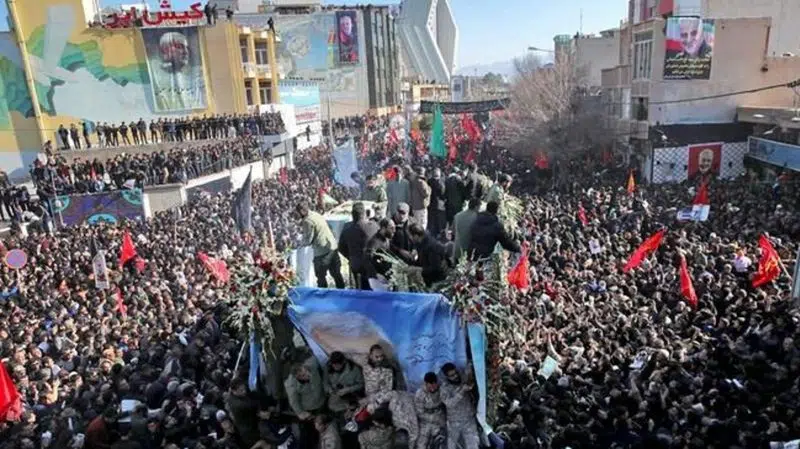
Iran strikes back at US with missile attack at bases in Iraq
TEHRAN, Iran — Iran struck back at the United States early on Wednesday for killing its most powerful military commander, firing a barrage missiles at two Iraqi military bases that house American troops in what the Iranian supreme leader said was a “slap” against America’s military presence in the region.
The retaliatory move is another dangerous escalation that could draw the region deeper into turmoil, despite insistence by Washington and Tehran that neither side wants war. U.S. and Iraqi officials said there were no casualties among their forces.
Iran’s Supreme Leader Ayatollah Ali Khamenei made clear that Iran’s ballistic missile strikes were in revenge for the U.S. killing of Revolutionary Guard Gen. Qassem Soleimani, whose death last week in an American drone strike in Baghdad prompted angry calls to avenge his slaying and drew crowds of Iranians, said to number in the millions, to the streets to mourn him.
“Last night they received a slap,” Khamenei said in a speech after the missile strikes. “These military actions are not sufficient (for revenge). What is important is that the corrupt presence of America in this region comes to an end.”


